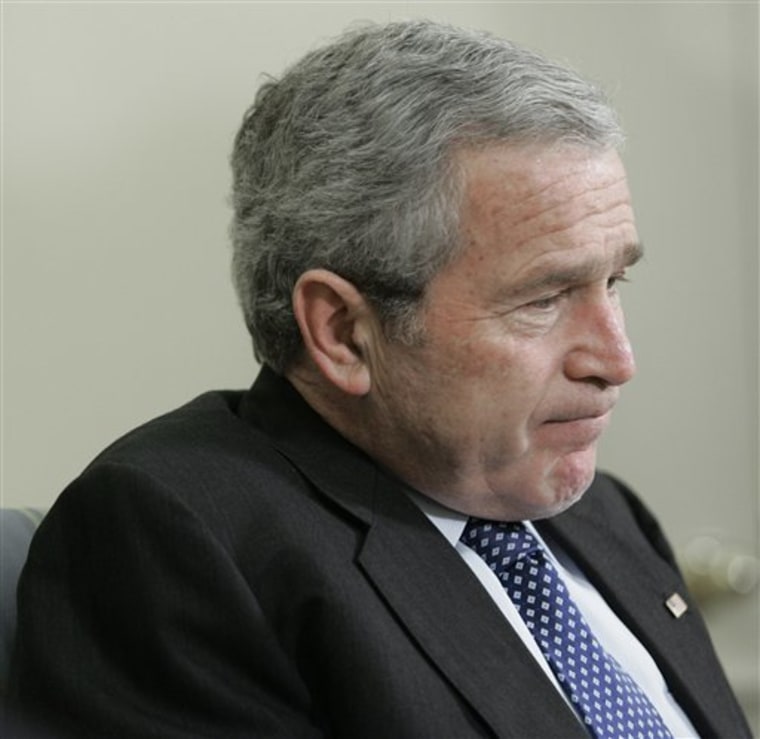President Bush said Wednesday the bipartisan panel he named to investigate problems at the nation's military and veterans hospitals would work to restore confidence in the system of caring for wounded troops.
"Any report of medical neglect will be taken seriously by this administration," Bush said in an Oval Office meeting with the co-chairmen of the panel, former Sen. Bob Dole, R-Kan., and Donna Shalala, who was secretary of health and human services during the Clinton administration.
"I'm confident that this commission will bring forth the truth," Bush said.
Full system review
The president announced last Friday he had ordered a comprehensive review of conditions at military and veterans hospitals, which have been overwhelmed by injured troops from the wars in Iraq and Afghanistan. The review came in the wake of disclosures of shoddy outpatient health care at Walter Reed Army Medical Center, one of the nation's premier facilities for the wars' wounded.
"Obviously, it's a tragedy," Dole told reporters outside the West Wing. He said the other seven members of the commission would be named later this week or early next week.
"Obviously somebody dropped the ball," said Dole, who as a young Army officer during World War II was grievously wounded in action in the Italian Apennine Mountains. He spent years in treatment and underwent numerous surgeries.
Shalala, currently president of the University of Miami, called the conditions at Walter Reed an "embarrassment to the country." Shalala said she could sense the president's anger about the situation.
At the Pentagon, Gen. Peter Pace, chairman of the Joint Chiefs of Staff, said he was surprised and hurt by the disclosures of shabby treatment of outpatients.
"I was sick," Pace said, noting that in his many visits to wounded soldiers at Walter Reed he had not checked the housing for outpatients. He said that in the future he will do so.
On Capitol Hill, Rep. C.W. Bill Young said the Pentagon must hold accountable Lt. Gen. Kevin C. Kiley, the Army surgeon general who was in charge of Walter Reed from 2002 until 2004. Young, the top Republican on the House panel that oversees military funding, said he has expressed his frustration to Defense Secretary Robert Gates and would not be surprised if Kiley were asked to leave his post soon.
"I told (Gates) I thought Kiley was the problem because he was at the top of the command," said Young, R-Fla.
Interagency task force created
Already grappling with low approval ratings and eager to avoid charges that he failed to act promptly, Bush said an interagency task force of seven Cabinet secretaries, led by Veterans Affairs Secretary Jim Nicholson, would be convened to determine what can be done immediately to improve veterans' care.
After meeting with the president, Nicholson defended the Veterans Administration, but acknowledged there is room for improvement.
"When you're seeing over 1 million patients a week, you have to be very good, and if there is any one patient who doesn't get the care that they deserve, that's unacceptable," Nicholson said
He said his agency is hiring 100 new patient advocates who will help troops returning from war deal with the bureaucracy.
"The American people can feel very good about the health care system that their VA is providing to veterans," Nicholson said, "but if there is a case where a veteran gets lost in the system, or suffers anxiety or their family does as a result of something we're not doing, that is unacceptable."
